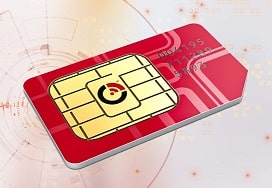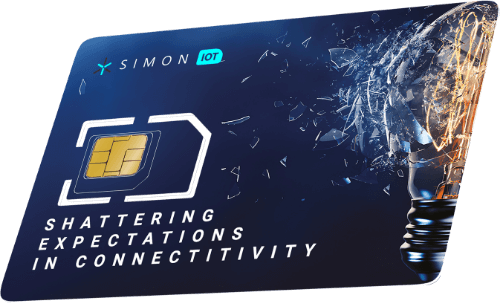2g Iot Sim Card IoT SIM Card M2M Devices
Sim Card For Iot IoT SIM Cards Explained Connectivity

The integration of Internet of Things (IoT) technologies into numerous sectors has remodeled how devices interact and communicate. Central to this transformation is the position of SIM playing cards in IoT connectivity. These small, invaluable parts are essential in facilitating safe communication between gadgets and networks, enabling seamless data transfer and remote management.
First, understanding the normal perform of SIM cards helps contextualize their significance in IoT. Originally developed for cell phones, SIM playing cards authenticate gadgets on a cellular network, providing a secure means of id verification. Beyond individual users, this capability has expanded into the realm of IoT, where countless devices now rely on this technology to connect and communicate (Iot M2m Sim Card).
Vodacom Iot Sim Card IoT SIMs Any Device Anywhere
The range of gadgets using SIM playing cards in IoT is remarkable, ranging from smart meters and wearables to automotive techniques and industrial equipment. Each of these applications presents unique challenges and requirements for connectivity. The presence of a SIM card in every device ensures that these numerous components can function successfully within a bigger network infrastructure.

IoT functions typically require real-time knowledge trade, making a reliable connection essential. SIM playing cards allow devices to connect on to cellular networks, offering not only flexibility but also mobility. This is particularly advantageous for functions that require units to function in distant or challenging environments, the place conventional wired connections might not be possible.
Prepaid Iot Sim Card Secure IoT SIM
Increased safety is another critical benefit offered by SIM cards. In a world more and more fraught with cybersecurity threats, the power to secure gadget communication via SIM-based authentication is invaluable. This means that data despatched and acquired is protected from unauthorized entry, making it more durable for cybercriminals to intercept sensitive data.
Moreover, the deployment of eSIM know-how has further enhanced the relevance of SIM playing cards in IoT connectivity. eSIMs, or embedded SIMs, allow for distant provisioning of cellular network subscriptions. This offers immense flexibility, enabling easier administration and updates of device networks with out the need to bodily substitute SIM cards. This is especially beneficial for large-scale IoT deployments, the place managing numerous gadgets can be cumbersome.
The scalability supplied by SIM cards is one other issue that fuels their importance in IoT purposes. As companies broaden their IoT ecosystems, the ability to connect further gadgets rapidly and efficiently can significantly improve operational agility. SIM playing cards set up a standardized methodology for connectivity that allows for more simple integration of latest devices into existing networks.
Furthermore, as more industries embrace IoT technologies, the demand for reliable connectivity solutions continues to develop. SIM playing cards are now more and more engineered to fulfill the specific needs of various sectors. For example, in the agricultural sector, units outfitted with SIM playing cards can present real-time information on soil situations and crop health, enabling farmers to make knowledgeable choices that improve yield.
Iot Sim Card copyright IoT SIM card Knowledge Base
Additionally, the logistics industry is witnessing a revolution driven by IoT, with SIM cards taking half in a significant function in monitoring shipments and managing fleets. The ability to watch vehicle performance and site in real time permits for extra environment friendly routing and gas administration, which interprets into important price financial savings for companies.
The evolution of IoT technologies also brings with it the need for future-proof solutions. The role of SIM playing cards will likely continue to adapt, paving the best way for enhanced performance and integration with upcoming technologies. As 5G networks roll out, SIM playing cards are set to supply even larger information transfer charges and decrease latency, additional enhancing the capabilities this link of IoT units.
What Is An Iot Sim Card IoT SIM
One concerning facet, however, is the potential for network fragmentation. With several mobile network operators (MNOs) deploying their proprietary solutions, ensuring universal connectivity can become challenging. In this panorama, interoperability turns into important to make sure gadgets can talk throughout totally different networks, regardless of the SIM card provider.
Transitioning to a next-generation IoT landscape includes considering the environmental impacts of numerous IoT devices. As extra gadgets connect by way of SIM playing cards, manufacturers must give attention to energy effectivity and sustainable practices to reduce the ecological footprint related to increased connectivity. Employing energy-efficient technologies can mitigate the risks of overwhelming energy calls for on our energy grids.
Does Nb-Iot Need A Sim Card IoT SIMs
The resilience offered by SIM cards is a notable factor in IoT deployments, notably relating to operational continuity. In the event of network disruptions or failures, devices can swap between available networks to take care of connectivity. This capability ensures that critical operations usually are not halted, notably in sectors similar to healthcare and emergency services where communication is paramount.
The use of SIM playing cards in IoT connectivity additionally opens up vast opportunities for information analytics and insights. By accumulating knowledge from connected gadgets, organizations can harness real-time data for decision-making. This might range from routine maintenance alerts to predictive analysis that anticipates system failures, in the end resulting in enhanced operational efficiency.
As the digital panorama evolves, the regulatory environment surrounding IoT and SIM card utilization will doubtless undergo adjustments as properly. Policymakers need to guarantee that the rapid innovation in IoT technologies continues to learn users while additionally safeguarding towards potential abuses and vulnerabilities. Striking this steadiness requires continuous dialogue between stakeholders, including authorities agencies, cell community operators, and technology builders.
The way forward for IoT connectivity will undeniably hinge on continued enhancements in SIM card expertise. As demand grows and new purposes are developed, SIM cards will evolve to fulfill these needs effectively. From increased security features to supporting rising technologies, their role will stay foundational to connecting a myriad of devices throughout multiple sectors.
Sim Card Iot Devices IoT SIM Cards Introductory Guide

In abstract, the function of SIM playing cards in IoT connectivity is characterized by their capabilities to provide safe, flexible, and scalable options that facilitate communication throughout a range of gadgets. As industries innovate and adopt IoT technologies, SIM cards will stay integral to ensuring dependable and efficient connectivity. The continued evolution of this technology will pave the method in which for more superior IoT applications, remodeling the landscape of interconnected gadgets. As we look forward, the influence of SIM cards on IoT connectivity might be pivotal in shaping the future of communication expertise.
- SIM cards allow seamless secure connections between IoT gadgets and cellular networks, ensuring reliable knowledge transmission.
- They play a crucial position in gadget authentication, preventing unauthorized entry and maintaining knowledge integrity across related systems.
- By supporting a quantity of network technologies (2G, 3G, 4G, and 5G), SIM cards provide flexibility in IoT deployments, catering to varied utility needs.
- IoT SIM playing cards may be designed for specific geographical areas, optimizing connectivity and performance in several environments.
- Remote administration capabilities of SIM cards permit for over-the-air updates and diagnostics, enhancing operational effectivity.
- Many IoT SIM solutions help eSIM technology, which allows for programmable connectivity, enabling gadgets to switch networks without bodily SIM replacement.
- SIM cards facilitate world attain by allowing units to connect with a number of networks, important for purposes like asset monitoring and fleet administration.
- They enable cost-effective solutions for IoT by allowing subscription fashions tailored to knowledge utilization and operational necessities.
- Industry-specific SIM cards can supply further options corresponding to enhanced security protocols and better performance in demanding situations.
- The integration of SIM playing cards in IoT gadgets accelerates the adoption of smart technologies across numerous sectors, driving innovation and effectivity.undefinedWhat is the function of SIM playing cards in IoT connectivity?undefinedSIM cards are essential for IoT units as they supply them with a singular identification on cell networks, enabling secure communication and data transmission. They make sure that gadgets can connect with the internet, ship and receive data, and authenticate their presence in the network.
How do SIM cards support security in IoT devices?undefinedSIM playing cards improve safety through encryption and authentication mechanisms. this page They store distinctive identifiers and cryptographic keys, guaranteeing that solely licensed gadgets can connect with the community, thus defending delicate knowledge from unauthorized entry.
Hologram Global Iot Sim Card IoT SIM Card eSIM Global Connectivity
Are there different types of SIM cards for IoT applications?undefinedYes, there are various kinds of SIM cards for IoT, similar to M2M SIM, eSIM, and iSIM. M2M SIM playing cards are designed for machine-to-machine communication, whereas eSIMs and iSIMs supply more flexibility and distant provisioning capabilities that are best for large-scale IoT deployments.
Can IoT units perform without SIM cards?undefinedWhile some IoT units can connect by way of Wi-Fi or different local networks, many require SIM playing cards to entry cellular networks, particularly in distant areas the place Wi-Fi is unreliable. SIM playing cards enable these units to maintain up connectivity without relying on fixed infrastructure.
How does a SIM card impact the worth of IoT connectivity?undefinedThe value of IoT connectivity is influenced by the sort of SIM card used, information plans, and repair suppliers. IoT options with SIM cards often incur monthly charges for information usage. Choosing the best plan can help manage prices successfully.
What challenges are related to using SIM cards in IoT?undefinedChallenges include managing deployments at scale, guaranteeing safe knowledge transmission, and handling SIM card logistics. Additionally, points corresponding to connectivity drops and coverage limitations can impact the performance of IoT applications.
Sim Card Per Iot The Ultimate Guide IoT SIM Cards
How do I select the best SIM card for my IoT project?undefinedSelecting the right SIM card involves evaluating the connectivity wants, information usage requirements, coverage area, and compatibility with the IoT gadget. Consulting with service suppliers can assist in making an informed decision tailor-made to the precise software.

What happens if the SIM card in an IoT device fails?undefinedIf a SIM card fails, the IoT device will lose its capacity to speak over the community. Recovery often involves changing the SIM card or troubleshooting the gadget to restore connectivity, depending on the trigger of the failure.
Can I remotely manage SIM cards in my IoT devices?undefinedYes, many service suppliers supply remote management options for SIM playing cards, allowing customers to watch performance, activate or deactivate SIMs, and handle knowledge plans effectively throughout numerous devices in real-time.
Hologram Global Iot Sim Card Single-Core Global eUICC IoT SIM
How do eSIMs change the landscape of IoT connectivity?undefinedeSIMs enable for distant provisioning and administration, eliminating the need for physical SIM card swaps. This flexibility streamlines deployments, reduces logistics prices, and enhances the scalability of IoT solutions, making them more adaptable to evolving wants (Iot Device With Sim Card).